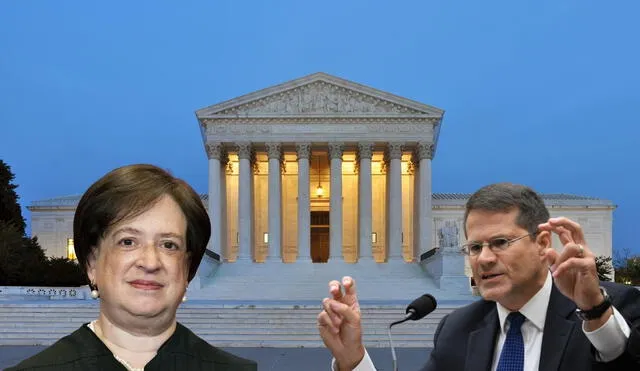Kagan slams Trump’s lawyer in court: “Every judge ruled against you!”
As the Supreme Court weighs the limits of presidential power, tensions flare on the bench. With Justice Barrett siding with liberal justices and Kagan openly rebuking Trump’s lawyer, this pivotal case could redefine the future of nationwide injunctions—and test the unity of the Court itself.

The U.S. Supreme Court heard arguments in a significant case concerning an executive order issued by President Donald Trump at the start of his second term. The order aims to deny citizenship to children born on U.S. soil to parents who are in the country illegally or temporarily, challenging the 14th Amendment, which traditionally grants birthright citizenship. Lower federal courts have blocked the order, deeming it unconstitutional. The Supreme Court is currently reviewing the Trump administration's emergency appeal, focusing not on the order's constitutionality but on the scope of lower court rulings—specifically, whether nationwide injunctions, which block federal actions everywhere, are permissible.
During the proceedings, Justice Elena Kagan sharply questioned Trump attorney John Sauer, highlighting the consistent rulings against the administration's position. She remarked, "Every court is ruling against you," and expressed skepticism about the case's merits. Kagan's pointed comments underscored the judiciary's role in checking executive actions that may conflict with constitutional principles.
Supreme Court divided over Nationwide injunctions as Barrett defends Kagan in Trump case
The justices appeared divided on the issue of nationwide injunctions. Conservative justices, such as Clarence Thomas, criticized universal injunctions as modern judicial overreach, while liberal justices, including Sonia Sotomayor, emphasized the constitutional violations posed by Trump's order. Justice Brett Kavanaugh proposed class actions as a viable alternative to nationwide blocks, though liberal justices argued these are conceptually distinct and insufficient for protecting rights en masse.
Justice Amy Coney Barrett, appointed by Trump, also challenged Solicitor General John Sauer during the arguments. Barrett defended Justice Kagan, questioning Sauer's dismissive response to Kagan’s legal inquiry about the expedited resolution of the issue through class certification. Barrett's defense of Kagan and her recent votes siding with liberal justices have drawn criticism from MAGA supporters, highlighting the complexities within the Court's dynamics.
Supreme Court ruling on Trump Order could reshape Immigration Law and executive power
Outside the Supreme Court, hundreds of protesters gathered, echoing concerns raised by Democratic leaders about the potential implications of the executive order. A ruling in favor of the administration could allow parts of the executive order to proceed regionally, posing significant implications for immigration law and executive authority. The Court's decision on injunctions could significantly impact how executive actions are challenged moving forward.
A decision from the Supreme Court is expected by the end of June, with the Court possibly acting sooner due to the urgency and the limited scope of this procedural issue. The outcome will have far-reaching consequences for the balance of power between the executive branch and the judiciary, particularly concerning immigration policies and the use of nationwide injunctions.













